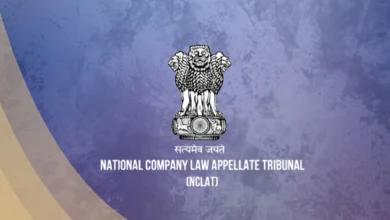Court holds Bank of Baroda liable for closing FD without permission of Joint Holder

| Get instant news updates: Click here to join our Whatsapp Group |
The National Consumer Disputes Redressal Commission (NCDRC) recently ruled against Bank of Baroda for failing to properly inform a joint account holder before releasing fixed deposit receipts (FDRs), calling it a “deficiency in service.”
Background of the Case
The complainant, Kamal Kumar Sajnani, had invested in fixed deposit schemes with the bank. He claimed that the funds used for these deposits came from his personal savings. However, the fixed deposits were made in both his and his wife’s names, as Sajnani was living in Spain at the time.
Later, Sajnani’s relationship with his wife worsened, and he wanted to change how the account was operated. He asked the bank to change the account’s operational instructions so that both his and his wife’s signatures would be required for any transactions involving the fixed deposits. Despite this request, the bank released the FDRs to his wife without informing Sajnani.
Complaint and Initial Ruling
Sajnani filed a complaint with the State Commission, accusing the bank of not following proper procedures. The State Commission agreed with him to some extent. It ruled that Bank of Baroda was at fault for not informing him before releasing the FDRs to his wife. As a result, the Commission ordered the bank to pay Rs. 1 lakh to Sajnani for the mental stress and harassment caused by this incident.
Bank’s Defense
Bank of Baroda, however, argued that it had followed all legal rules and banking norms. They said that the payments were made in “good faith,” meaning they believed they were acting correctly under the circumstances.
Final Decision by the National Commission
The case was then taken to the National Consumer Disputes Redressal Commission. The NCDRC looked into the matter and decided that the bank had indeed failed in its duty to properly inform both joint account holders—especially after Sajnani had specifically asked for both signatures to be required. The National Commission ruled that this failure to notify Sajnani was a clear “deficiency in service.”
The National Commission upheld the decision made by the State Commission, agreeing that the bank was at fault and dismissing the bank’s appeal.
Conclusion
In simple terms, the Commission made it clear that banks have a duty to keep all account holders informed, especially when requests for changes to account operations are made. In this case, Bank of Baroda did not follow the proper procedure by failing to notify Kamal Kumar Sajnani before releasing the fixed deposits to his wife, leading to this ruling in Sajnani’s favor.
